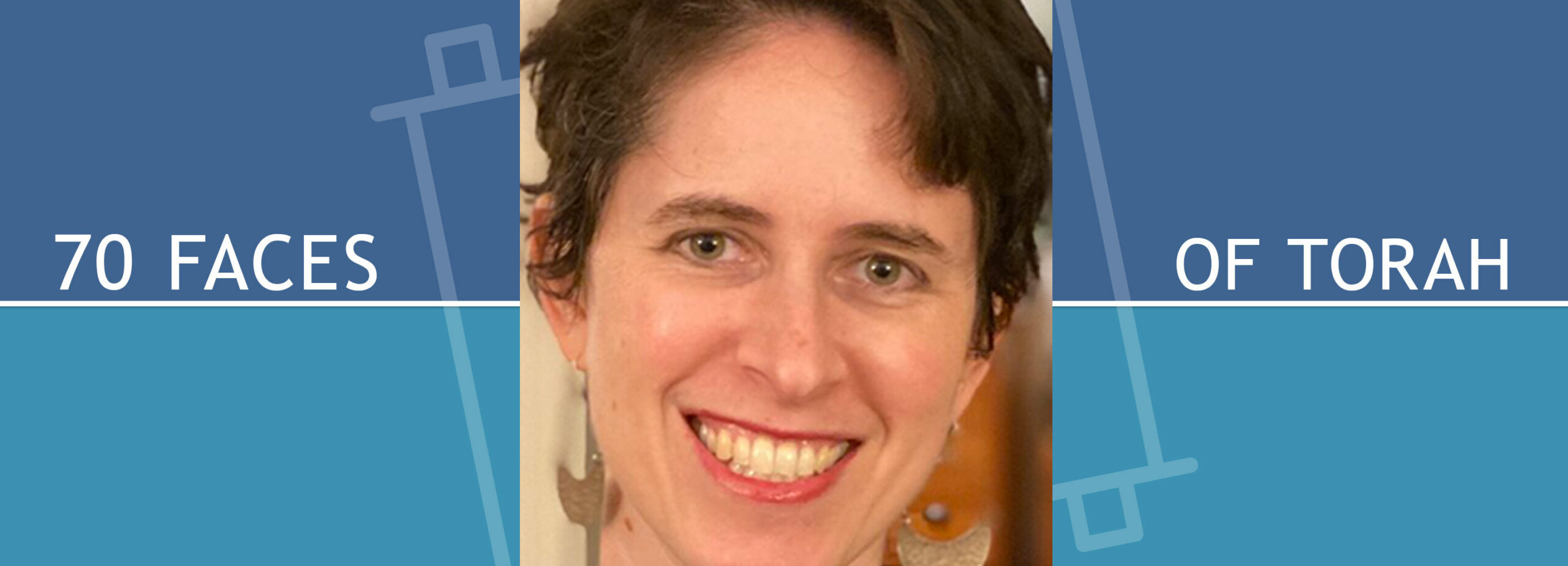Leviticus Strange Fire of the Heart

Parashat Shemini, Leviticus 9:1-11:47
When I was in seventh grade, I had my first role in a play. It was Cinderella in Into The Woods, a dream part—one that ultimately marked the peak of my theater career. I loved going to rehearsals after school, going to the costume warehouse and trying on the rags and gown, singing with the little orchestra. But nothing prepared me for the sense of magic and presence on opening night. The lights went up, I opened my mouth and started singing, and an entirely different energy came the room. Nothing we had done up to that point could fully prepare us for what happens when the audience shows up, and the art of the theater is live.
The work of building the mishkan, the portable tabernacle in the wilderness, followed by seven days of dry-runs, is not unlike the rehearsals for a play. “Shemini”, the eighth day, is the moment the lights go up. When the mishkan is dedicated, it’s opening night for the Israelites. God moves in, and nothing can have fully prepared them.
At first, all goes as planned. Aaron and his sons offer sacrificial offerings, and blood is sprinkled on the appropriate places. But then things start to get intense:
Moses and Aaron came to the Tent of Meeting, and then came out and blessed the people. A fire came out from God and consumed the burnt offering on the altar…The people saw, and cried out, and fell on their faces. (Leviticus 9:23-24)
“That was amazing,” I imagine one Israelite saying to her friend, dazed, as she picks herself up from the dusty earth. “I’m glad it worked–but I wasn’t expecting it to work so well!”
It is one thing to prepare and yearn for an intimate experience of the Divine; it is another thing to have that experience. And the general Israelite population were not the only ones thrown off course. Directly after God’s entrance onto the stage, Nadav and Avihu, two of Aaron’s sons, bring esh zara, literally “a strange fire”–in context here, a fire offering that was not commanded by God. And in a verbatim repetition of what happened just a few verses earlier, in which a sacrifice was consumed in flames, “A fire came out from God and consumed them”–not just their offering, but the offerers themselves.
What are we to make of this?
On the one hand it is simple: Nadav and Avihu go off-script. The magic of opening night goes to their heads, they forget their lines, they trip, they ignore the stage directions, and they get fired. Literally.
But on the other hand, they steal the show.
Nadav and Avihu are wowed. They are astonished. They are in awe. God has just eaten their offering! God is in this house! This is the Holy One of Blessing appearing right in front of them, and consuming an offering. This is not a children’s play, or child’s play. It is incredible. It is revelation.
While the rest of the people are still in a state of sacred shock, still hearing the echoes of their ringing cry of surprise, Nadav and Avihu take action. They want God to know that they saw, that there is a response. From a place of awe and devotion, from the passionate recesses of their own hearts, Nadav and Avihu bring a fire, something to show God their devotion, something to express their awe.
God accepts their offering: their full selves, their devotion–and their lives.
The Hasidic master Rav Nachman of Bratslav explains it this way: “Nadav and Avihu died because they burned with great zealousness for Godliness, even beyond their capabilities” (Likutei Halakhot II, p. 408). In other words, they were not rebellious kids playing with matches and being careless. They were deep seekers, and they lost themselves in the sacred fire.
We know that mystical experiences can be very dangerous. When engaging in deep mystical seeking, the warning is clear – don’t tread into the fire if you’re not willing to risk being seriously burned. Don’t jump off the mountain if you don’t want to die. But what about those of us who are not at risk of dying or going mad from our spiritual practices? What do Nadav and Avihu teach us?
There is a moment, right before they offer the strange fire, where we may emulate these brothers. This is the moment of total awe, of paying such exquisite attention to the miracles unfolding before us that we are compelled to respond – in thought, in word, in deed, in presence. Whether of the view from the top of a mountain, a first spring crocus, or watching a child in their first theatrical performance, we can cultivate an awareness that leads us to offer the fire of our hearts in gratitude for each unfolding amazement.
But we who want to stay with our feet on the ground, breathing for many years to come, must resist the sacred urge to entirely give ourselves up in service to the Holy One. We must draw boundaries around our lives, taking care of our own bodies and needs even as we attend to others. We must dwell in the eye-popping paradox that we are both totally one with God and individual human beings who are blazing with love, but not ready to be consumed by the sacred fire of complete self-sacrifice.
Shoshana Meira Friedman, 2014 graduate of the Rabbinical School of Hebrew College, where she became the director of the College’s Artist Beit Midrash in 2022.

